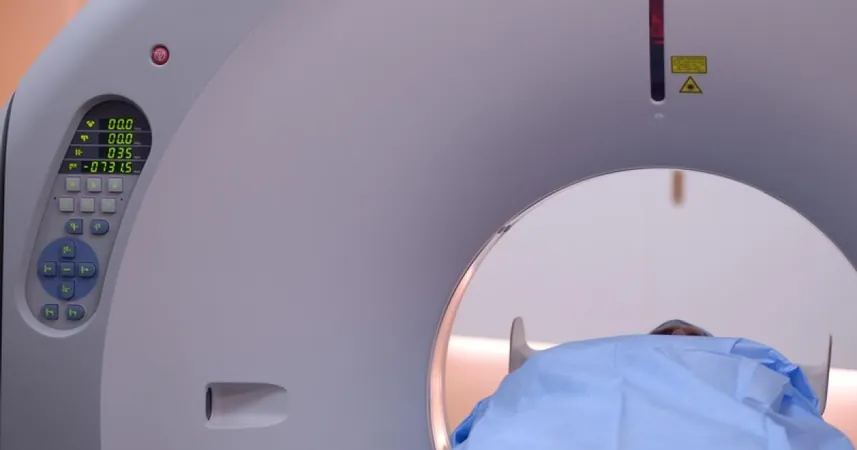
Revolutionary AI Breakthrough: Routine Abdominal CTs Now Offer Early Detection of Deadly Cardiovascular Risks!
2024-12-06
Author: Jia
Introduction
In a groundbreaking revelation presented at this year's annual Radiological Society of North America (RSNA) meeting, researchers at NYU Langone Health have unveiled an exciting potential for routine abdominal CT scans. Thanks to advanced artificial intelligence (AI) technologies, these scans may also serve to screen for hidden dangers of cardiovascular disease.
Opportunistic Screening
During the meeting, interest surged around the concept of opportunistic screening—leveraging existing imaging to reveal health issues not directly related to the primary reason for the scan. This approach could revolutionize preventative health measures, effectively catching heart disease early when it can be treated most effectively.
Research Insights
Lead researcher Dr. Miriam A. Bredella, a prominent figure in the medical community and director at NYU Grossman School of Medicine, explained, “Instead of relying solely on specialized coronary CT scans—which are not only rare but also often aren’t covered by insurance—we aim to harness AI’s power to examine the more common abdominal scans. This may allow us to identify heart disease earlier and more frequently.”
Study Details
In their extensive study, the team applied an AI calcium scoring algorithm to analyze nearly 4,000 abdominal CT scans from patients who also underwent dedicated coronary CT studies. The algorithm adeptly assessed calcium deposits throughout the aorta, providing a wealth of data that researchers compared with the results from coronary CTs.
Key Findings
What they discovered was striking: there is a significant correlation between aortic calcium levels and the calcification in patients’ coronary arteries. Alarmingly, the presence of aortic calcium was linked to an elevated risk of severe cardiovascular incidents. Those with identifiable aortic calcium were found to be 2.2 times more susceptible to life-threatening events such as heart attacks or strokes requiring emergency intervention within just three years of their initial CT.
Implications of AI Technology
Even more startling is the fact that the AI technology detected aortic calcium in 29% of the patients, who were previously unaware of any calcium buildup. This underscores the importance of utilizing existing medical imaging techniques not only to diagnose known conditions but also to uncover unexpected health threats.
Future Directions
While these findings are undoubtedly promising, Dr. Bredella and her team caution that further research is necessary to validate if these opportunistic screening methods can consistently and reliably identify early signs of cardiovascular disease. As the healthcare community looks to integrate AI into everyday practices, this could mark a crucial step towards reducing the staggering rates of heart disease and improving patient outcomes globally.
Conclusion
Stay tuned as we continue to follow this exciting intersection of AI and medicine, where routine scans might just save lives!




 Brasil (PT)
Brasil (PT)
 Canada (EN)
Canada (EN)
 Chile (ES)
Chile (ES)
 España (ES)
España (ES)
 France (FR)
France (FR)
 Hong Kong (EN)
Hong Kong (EN)
 Italia (IT)
Italia (IT)
 日本 (JA)
日本 (JA)
 Magyarország (HU)
Magyarország (HU)
 Norge (NO)
Norge (NO)
 Polska (PL)
Polska (PL)
 Schweiz (DE)
Schweiz (DE)
 Singapore (EN)
Singapore (EN)
 Sverige (SV)
Sverige (SV)
 Suomi (FI)
Suomi (FI)
 Türkiye (TR)
Türkiye (TR)